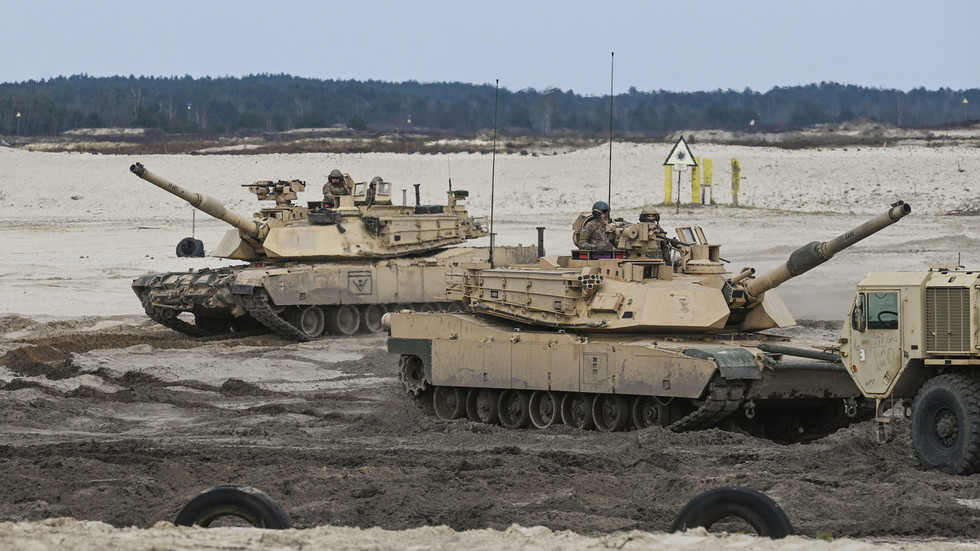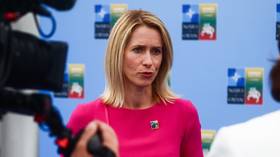
The bloc’s industry and civilians alike must prepare for an all-out conflict within the next 20 years, a top NATO official has said

FILE PHOTO. US soldiers train with M1A2 Abrams tanks in Nowa Deba, Poland. © Getty Images / NurPhoto / Artur Widak
The US-led NATO bloc must prepare for a major conflict with Russia, which would require mass mobilization of civilians as well as the rapid expansion of industrial output to sustain the war effort, Dutch Admiral Rob Bauer, the chair of the NATO Military Committee, has said.
The top official made the remarks after a Thursday meeting of NATO defense chiefs in Brussels, urging the bloc to prepare for a major conflict with Moscow within the next 20 years.
“We have to realize it’s not a given that we are in peace. And that’s why we are preparing for a conflict with Russia,” Bauer stated. “It starts there. The realization that not everything is planable and not everything is going to be hunky-dory in the next 20 years.”
The official warned that the potential conflict would require focused effort not only from the NATO militaries themselves but also from the industries and civilians of member states alike.
“You need to be able to fall back on an industrial base that is able to produce weapons and ammunition fast enough to be able to continue a conflict if you are in it,” he said.
We need to be readier across the whole spectrum. You have to have a system in place to find more people if it comes to war, whether it does or not. Then you talk mobilization, reservists, or conscription.
Bauer’s statements come amid a series of warnings from NATO member states of a purportedly imminent conflict between the US-led bloc and Russia. Earlier this week, for instance, Estonian Prime Minister Kaja Kallas claimed the alliance has only three to five years to get ready for the possible confrontation.

Speaking to The Times, Kallas warned that the timeframe “very much depends on how we manage our unity and keep our posture regarding Ukraine.” “What Russia wants is a pause, and this pause is to gather its resources and strength. Weakness provokes aggressors, so weakness provokes Russia,” she asserted.
A similar take on the situation was provided by British Defense Minister Grant Shapps, who predicted a larger-scale conflict between the collective West and Russia, China, Iran, and North Korea within five years. The minister urged the allies to ramp up their defense spending, insisting the West is now facing an “existential threat” from the aforementioned countries.




